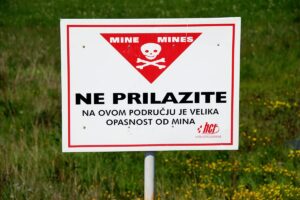Additionally, under the Bosnian Law on Foreigners, in some instances, foreigners can work without a permit, indicating an even higher actual number of foreign workers, as confirmed by the UNIDAD Employment Agency.
Predominantly, workers are arriving from Serbia, Turkey, Bangladesh, Nepal, and Kuwait. There’s also increasing interest from employers in Bosnia and Herzegovina for workers from Pakistan, the Philippines, and India.
UNIDAD notes a significant increase in the demand for foreign workers over the past two years. “Current figures suggest that the number of foreign workers has doubled since 2020. However, compared to Croatia, which hosts over 140,000 foreign workers, Bosnia and Herzegovina’s figures are still modest. The most acute shortages are in the industrial, catering, and construction sectors,” they report.

Historically, employers in Bosnia and Herzegovina have hired foreign workers for roles such as upholsterers, welders, carpenters, rebar workers, masons, waiters, and hotel room cleaners. Experiences with these workers have generally been positive, with many showing a strong work ethic and integrating well with local staff. Instances of illegal border crossings into the EU have occurred but are rare. UNIDAD emphasises that through careful selection and thorough security checks by authorities, they aim to minimize such incidents.
Bosnian employers prefer hiring domestic workers, often citing their higher qualifications and the avoidance of lengthy, costly permit procedures. However, due to a lack of local talent, particularly in specified professions, employers are increasingly turning to foreign workers.
Data from the Agency for Labor and Employment of Bosnia and Herzegovina reveals that in the first half of this year, 2,490 work permits were issued, including 1,485 within the quota system and 1,005 independently. The majority of these permits were granted to nationals from Turkey (732), Serbia (336), Nepal (163), Bangladesh (159), China (134), and India (128).







